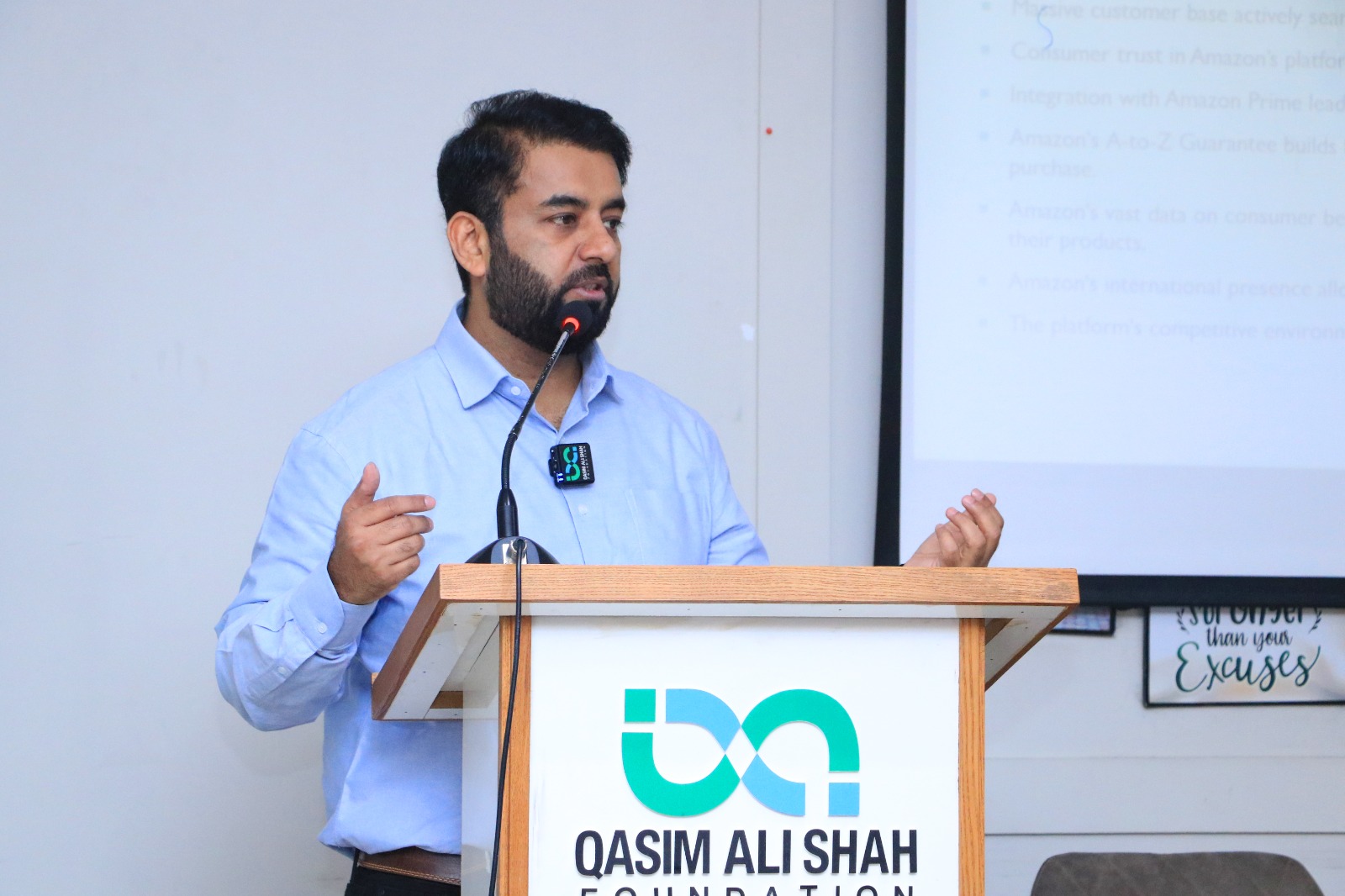Many professionals struggle with fear of public speaking. You might feel your heart racing before walking on stage. Or your voice trembling during a meeting. It is a common fear that affects beginners, even successful entrepreneurs.
I faced the same challenge when I started hosting business seminars 20 years ago. Confidence did not come overnight. It came through consistent effort and mindset work.
Public speaking is not only a stage skill. It is a business skill that defines how you present your ideas, pitch investors. You cannot grow a brand, lead clients, or scale your business without mastering your communication.
So, let’s talk about seven lessons that helped me overcome my fear of public speaking and how you can do the same.
Why do people fear public speaking?
You might wonder why so many people feel nervous before speaking in front of others. The reason lies in the brain’s natural defense system. It reacts to attention as if it were a danger.
A study by the National Institute of Mental Health found that around 75% of adults experience glossophobia, the fear of public speaking. That fear is not weakness. It is your brain’s way of protecting you from rejection.
People often fear the judgment of others. They imagine forgetting their words or making a mistake. Some fear being compared to experienced speakers. Others fear losing credibility. I remember my first corporate training event in Lahore.
I prepared for weeks, yet my hands still shook. The audience looked serious, and I felt pressure to impress. That pressure was not external—it was self-created.
The moment you accept fear as natural, you begin to control it. Confidence is not the absence of fear. It is the ability to act despite fear.
What causes fear of public speaking?
It is important to understand that fear has both psychological and environmental causes. Let’s break them down.
- Past experiences: Many people remember moments when they were embarrassed or criticized in public. Those memories stay with them and build resistance to speaking again.
- Perfectionism: You may want every line to be perfect. That desire increases pressure. According to Psychology Today, perfectionists experience 40% higher stress levels before public appearances.
- Cultural pressure: In Pakistan, audiences often expect formal behavior. That cultural expectation adds more anxiety. When I started conducting sessions in Islamabad, I noticed professionals hesitated to ask questions publicly because they feared judgment from peers.
- Lack of preparation: Many people confuse memorization with preparation. True preparation involves understanding your topic and audience deeply.
Once you recognize these causes, you can address them one by one.
How can you overcome your fear of public speaking?
You can control fear through discipline, practice, and perspective. Here are seven proven strategies I use with clients and during business consultation sessions.
1. Redefine fear as your energy
Fear and excitement create the same physiological reaction. Your heartbeat rises, palms sweat, and adrenaline spikes. The difference lies in interpretation. It is important to know that your fear is energy waiting to be used. Before every seminar, I close my eyes for 30 seconds and remind myself, “This energy means I care.” You can do the same. Reframe fear as fuel.
2. Prepare for clarity, not perfection
Preparation gives confidence, but over-preparation creates anxiety. You should focus on the core message instead of memorizing lines. A clear structure keeps your talk organized.
Use the “3-3-3 method”:
- Three key points to deliver
- Three examples or stories
- Three takeaways for the audience
When you focus on clarity, your message sounds authentic and conversational. Harvard Business Review reports that authentic speakers build 29% more audience trust than overly rehearsed ones.
3. Know your audience deeply
You should always research your audience before speaking. Are they entrepreneurs, students, or corporate leaders? Understanding them changes your tone and examples. When I spoke at a startup summit in Lahore, I adjusted my content around eCommerce case studies instead of theory. The response was more engaging.
Audience research also helps in personal branding because your communication reflects your brand voice. The more you connect, the more credible you become.
4. Control your body language and breathing
Your mind influences your body, and your body influences your confidence. When you stand straight, breathe slowly, and make eye contact, your brain signals calmness. A study published in Frontiers in Psychology found that controlled breathing lowers anxiety by up to 30% during public tasks.
Practice speaking in front of a mirror or record short videos. Watch how your gestures, tone, and posture look. You will identify what needs adjustment. Remember, your body speaks before your words do.
5. Focus on helping, not impressing
Every great speech starts with a purpose to serve. You are not there to prove your intelligence. You are there to provide value. Once you focus on helping your audience, you stop worrying about their judgment. I often tell clients during digital marketing strategy calls that confidence in presentation is the same as confidence in a sales pitch—you are not selling yourself; you are solving a problem.
Ask yourself: “What can my audience take away today?” The answer guides your tone, pace, and examples.
6. Record, review, and repeat
You cannot improve what you do not measure. Record your talks, even if they are short. Review the playback. Notice how your tone changes or where you pause unnecessarily. Improvement is visible only when you reflect.
During my first online masterclass, I reviewed my recordings to evaluate engagement. I realized I spoke too fast when discussing technical topics. That insight helped me slow down and connect better next time.
Continuous improvement builds confidence, not talent alone.
7. Reframe failure as feedback
Many people fear public speaking because they fear failure. They believe one mistake defines them. It does not. Failure is part of learning. The word FAIL stands for First Attempt In Learning.
I remember conducting a corporate event where my slides stopped working mid-presentation. Instead of panicking, I spoke directly to the audience and turned it into a Q&A session. That experience taught me adaptability.
According to Forbes, leaders who recover confidently from errors are 43% more respected by their audience. Your recovery defines your credibility more than your perfection.
How does fear of failure affect public speaking?
Fear of failure blocks creativity. It limits opportunities and prevents people from expressing ideas. When you worry about mistakes, your focus shifts from delivery to defense. That internal shift lowers your presence.
As an eCommerce expert, I have seen entrepreneurs lose investor interest due to nervous communication. They knew their numbers, but they could not project belief. Confidence in your words builds trust in your business.
You should practice sharing small ideas first. Talk in meetings, webinars, or team sessions. Each small win weakens your fear. Over time, you will notice that speaking becomes natural, not forced.
Can business skills improve public speaking confidence?
Yes. Business communication and public speaking share the same foundation: clarity, confidence, and connection. You can apply the same principles used in marketing to speaking.
In public relations, message framing matters. In influencer marketing, emotional tone matters. In business presentations, structure matters. Each area demands presence and precision. When you develop these skills together, you grow as a communicator and as a brand.
I encourage every professional to integrate speaking practice into their weekly routine. Join webinars, host short team discussions, or attend workshops. Confidence grows only through exposure. A global survey by Prezi revealed that 70% of business professionals who practice weekly presentations report higher career growth rates.
Why should you invest in building communication skills?
Public speaking opens new doors. It helps you win clients, lead teams, and influence decisions. You can have a brilliant product, but without the ability to communicate its value, your success will remain limited.
I have coached hundreds of professionals through my business coach programs who transformed their careers after improving their speaking confidence. Some became trainers. Others became team leaders. The result was not magic—it was mindset.
Remember, fear is not the problem. Avoidance is. Every time you speak despite fear, you grow stronger.
What steps should you take next?
You should begin small. Speak in front of five people. Then move to ten. Then host a webinar. Gradual exposure builds comfort. Record your sessions and seek feedback.
Engage with experts who can guide you through structured communication training. Attend business confidence workshops and online courses. Practice articulation, voice tone, and narrative flow.
When you face your fear, you expand your capacity for leadership. Confidence in communication turns ideas into impact.
Author’s Closing Words
Overcoming fear of public speaking is a journey, not a destination. Each attempt adds a layer of confidence. Each talk becomes a step toward personal growth.
You do not need to eliminate fear—you need to transform it. I learned that every time I stood on stage, I discovered more about myself than the audience ever could.
If you want to grow your confidence and amplify your professional voice, explore my sessions in multiple aspects of life.
Fear may visit you again, but it does not have to control you. You already have what it takes—you just need to start speaking.


